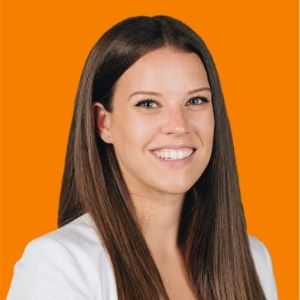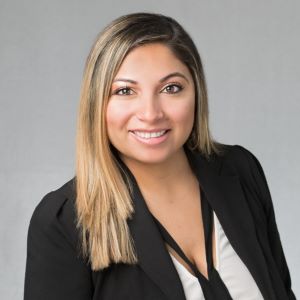SIA RISE Q&A on Diversity, Equity and Inclusion With Dayanna Nunez, Human Resources Director for i-PRO Americas


In this Q&A, Tristin Vaccaro, lead on the SIA RISE community’s Diversity, Equity and Inclusion (DE&I) Subcommittee, sits down with Dayanna Nunez, human resources director for i-PRO Americas, to discuss the impact of DE&I initiatives on workplace culture, the journey towards inclusivity in the security industry and the challenges and triumphs in promoting diversity at a foundational level.
In this interview, Nunez sheds light on the initiatives that helped transform i-PRO’s approach to diversity and shares her advice for young professionals facing barriers to DE&I at their workplace.
Can you tell me a bit about yourself, your position at i-PRO, and how you started getting involved with DE&I?

Dayanna Nunez: I’ve been at i-PRO since October 2021, and my position is HR director for the Americas region. I came from a manufacturing background, and in every organization that I’ve been with, I have always participated heavily in everything related to DE&I. I feel that I fit that criteria pretty well, being that I am a woman and a minority. Even in my university days, I was the president of the Hispanic Latino association at my university. It just happens to be very fitting.
How did that experience translate to your work at i-PRO?
DN: When I came in, there wasn’t a lot of focus around DE&I. Then, about one year into my role, we as a company decided to have a statement around DE&I. I was already having conversations with leadership and saying things like, “Hey, you know, diversity is not just increasing the number of women we have here, OK?” And so slowly but surely, we started to implement new things.
What are some of the initiatives that you’ve helped implement?
DN: I started a diversity and inclusion committee for the Americas. In the beginning, we met about once a month and started putting key performance indicators (KPIs) together. Where are we today? Where do we want to be in 2025? We officially surpassed those KPIs in one year’s time. We also do unconscious bias training every year, and I also helped start two employee resource groups (ERGs).
Can you tell me more about those ERGs?
DN: We actually just officially launched the first woman’s ERG. We have about seven people that are part of the steering committee for that, and we’ll officially launch it in our new fiscal year in FY24. We also have the i-PRO Connect group, which is tailored around diversity for early career professionals. So just introducing them to what the industry is like, but also pairing them with a mentor, someone that has been very seasoned in their careers.
How did the i-PRO Connect group come about?
DN: One of the reasons why we started the i-PRO Connect group is because, honestly, when I first came in, I did feel like there was a lack of diversity in recruiting. And what I really mean is that really everyone was coming from the security industry. What tends to happen is if you don’t include people from other industries or with other types of thought processes, it’s just that groupthink effect. Everyone’s just going to continue to do what they’re doing because there’s no one from a different perspective to either question it or give you a different perspective. This leads to a lack of diversity in thought.
So, what did you do to combat that?
DN: It started with us really trying to diversify what our candidate pool looks like, and then once they come into the company, better understand what that may look like for them if they are new to the industry. We try to bring in skill sets that are hard to find or people with great soft skills, and then we teach them the product later.
What are some of the barriers you’re finding to achieving DE&I?
DN: The very first one is when we came out with our DE&I philosophy, there was a misconception of, “Oh, you’re just going to start hiring a whole bunch of women and promoting them to meet your quota, right?” We continuously have to educate and make sure that no matter what we do, we don’t create exclusivity, and that we constantly create inclusivity in the workplace. The second thing is getting people to change their mindset, because people don’t even realize how much bias they have unless you make them aware of it.
What advice would you give to young professionals trying to overcome DE&I barriers?
DN: You know, sometimes topics surrounding DE&I are difficult conversations to have. And I know a lot of times young professionals don’t feel like they have the tools to maybe bring their concerns forward. So, the No. 1 thing that I always tell everyone is to take a look at what resources are already available at your current company. Even if you’re at a small company, I would have to say take advantage of the Security Industry Association, network with people, participate in the mentorship program and attend events. There are so many different ways that you can learn from others!
The views and opinions expressed in guest posts and/or profiles are those of the authors or sources and do not necessarily reflect the official policy or position of the Security Industry Association.
